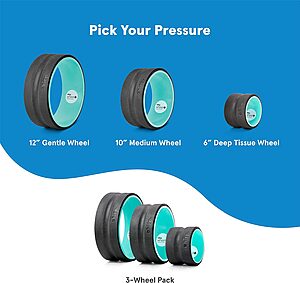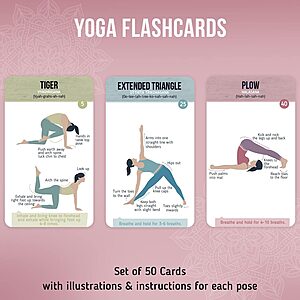There are many different types of meditation, and each type has its benefits. But there’s one thing that most people don’t know about meditation: When is the best time to do it?
Have you ever wondered when you should meditate? Do you want to learn more about the different types of meditation? What if you could improve your meditative abilities? Well, we’re going to answer all these questions and more.
In this blog post, I’ll teach you everything there is to know about meditation. I’ll introduce you to the different types of meditation and when you should use them.
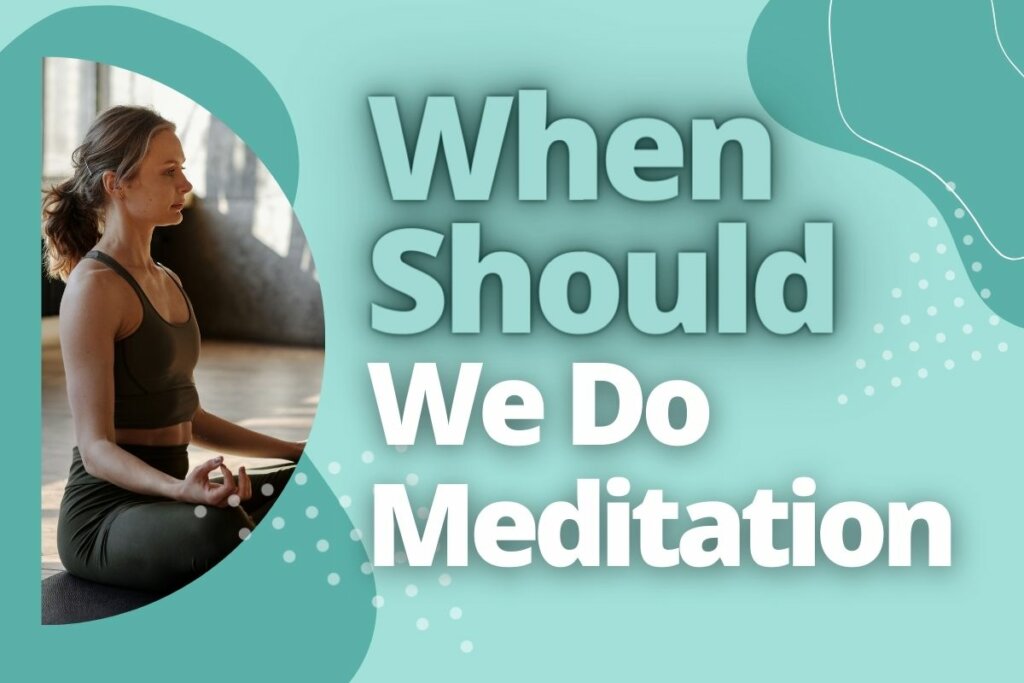
Here’s The Answer To When Should We Do Meditation
Even though you can meditate on any day, it’s ideal to do so in the evening. The body is rested, and you’re not busy with work or school.
Before bed is also good because your mind will be calm and settled for hours after you stop meditating. The best time to meditate is between 6:00 pm and 11:00 pm. This is when your mind will be the calmest.
It’s best to start meditating in the morning when your body is well hydrated and fully rested. Then, your thoughts will be clear, and you’ll have the energy to stay focused for at least 10 to 15 minutes.
The Best Time To Meditate: Morning Or Evening?
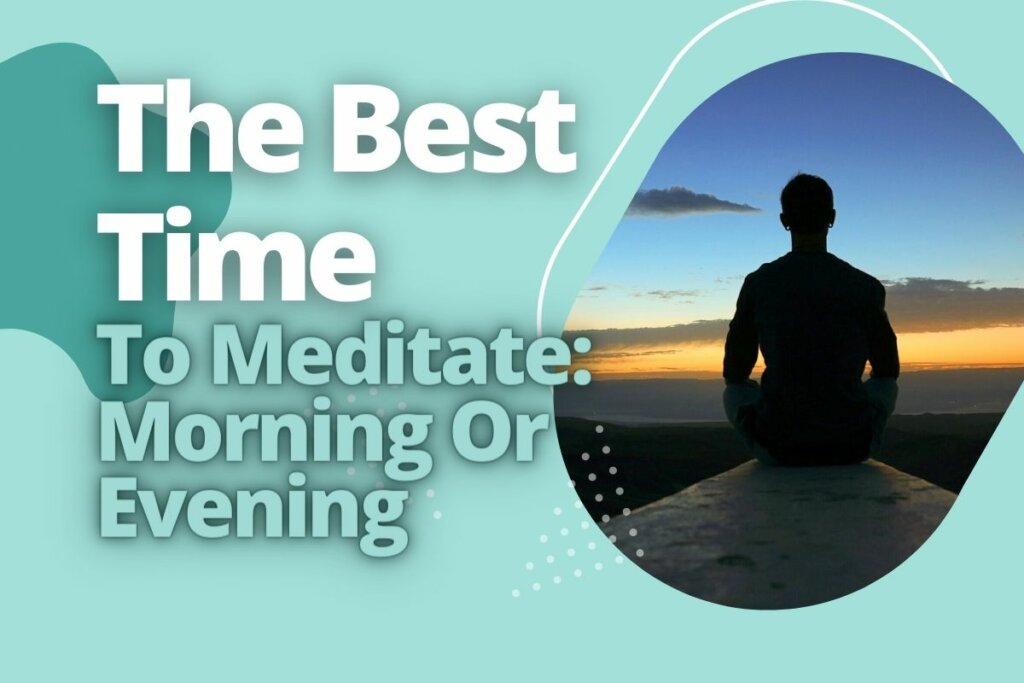
The best time to meditate is first thing in the morning when you’re fresh and alert. If you wait until after work, you’ll be more tired, and meditation will be a chore instead of a treat.
While the best time to meditate is really up to you, a morning meditation session can be beneficial. Morning meditation helps you start your day on a positive note, and it can also help you clear your head after a long night’s sleep.
I recommend doing a few minutes of meditation each day if you’re starting. Ideally, you’ll want to sit in the same place and time every day so that it becomes part of your daily routine.
To begin a regular meditation practice, it is advisable to experiment with different times until you discover one that works well for your schedule.
How To Choose The Best Time Of Day For Meditation
There are some general time periods that are best for meditation. However, to truly relax and de-stress, you must set aside some time each day for this purpose.
The optimum times of day for most people to meditate are in the early morning or late at night. Make sure to find a comfortable place to sit, practice regularly, and avoid distractions.
The best time to practice meditation is when you are most rested and relaxed. If your mind is restless or facing difficult situations, it might be a good idea to wait until you feel calmer before starting to meditate.
Meditate After Work
Meditating after work can help you decompress, unwind, and find some quiet time for yourself. The benefits of regular meditation include more restful sleep and reduced stress.
Meditating after work can help you decompress, unwind, and find some quiet time for yourself. The benefits of regular meditation include more restful sleep and reduced stress.
Meditation is a great way to integrate your health and wellness practices into your daily routine. It’s also a terrific way to unwind after a long day at work and recharge your batteries for the following day.
Meditate During the Lunch Hour
Meditating during lunch is a great way to enjoy the stillness and inner peace. To improve your capacity to concentrate on a mantra, you can benefit greatly from this meditation technique.
Meditation during the lunch hour is a great way to take a break, unwind, and get your mind for the rest of the day.
Meditation apps are a great way to get started with meditation because they give you prompts and reminders, so you don’t have to worry about forgetting or setting a timer.
Meditate Before Bed
Meditate before bed to reduce stress, improve posture, and prepare your body and mind for sleep. In addition, meditation before bed can help reduce blood pressure and chronic pain and improve your practice of meditation overall.
Meditation before bed is a healthy way to spend a few minutes relaxing your mind and body each day. Stress reduction, better sleep, and more happiness are all benefits of regular meditation.
Meditate Before Exercise
Meditating before exercise can help you focus on the present and get more out of your workout. It can also help you build a habit of mindfulness in your daily life, which will make you happier and healthier overall.
Meditating before exercise can reduce stress and anxiety, which will allow you to enjoy your workout more and get better results. In addition, this can help you get in tune with yourself and find a sense of peace and calm in your daily life.
The Ideal Time Of Day To Meditate: Why Does It Matter?

According to research, meditating in the morning or night is the ideal time for the most benefits. This is because these hours are when the mind is at its most active and calm.
Many different types of meditation can suit your needs, and by practicing regularly, you can improve your mental health and well-being!
Meditation has been shown to have numerous health benefits, including reducing stress and anxiety.
The Benefits Of Evening Meditation
The Benefits Of Evening Meditation is headspace meditation, which can be done in the evening or whenever you have time. Other benefits include stress reduction, improved sleep quality, and increased focus.
How To Make Time For Meditation In Your Busy Schedule
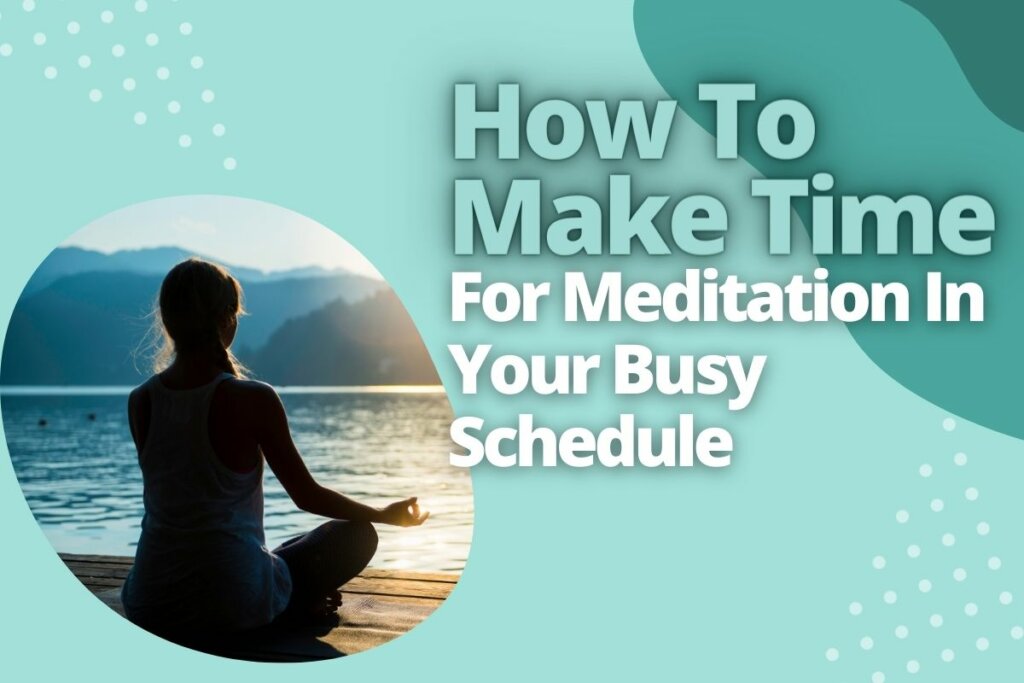
We all know that meditation is good for us, but it’s hard to find time in your busy schedule if you’re like me. So here are some tips for making meditation a part of your daily routine:
- Try to schedule time for meditation first thing in the morning or last thing at night. That way, you’ll have a chance to get it done before other responsibilities start crowding out your schedule.
- Keep it short! Work your way up from as little as 10 minutes every day. You’ll be surprised how quickly you can build up a habit!
Tips For Maintaining A Consistent Meditation Practice Everyday
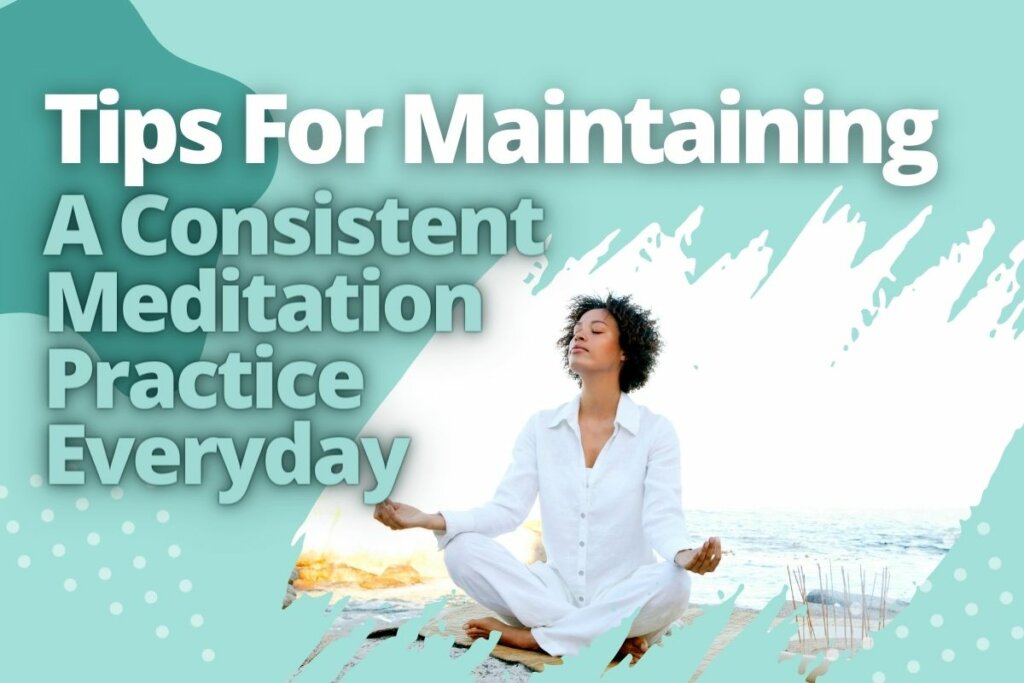
We have put together a list of tips that will help you maintain a consistent meditation practice every day.
- Practice at the same time each day. This will help you establish a routine and get into a meditative mindset.
- Use calming music during your session to help you focus.
- Set a mindfulness timer reminder on your phone or computer to keep you on track.
- Practice regularly, even if it’s just for 10 minutes.
- Use mindfulness techniques like focusing on your breath or counting your blessings.
- Make meditation an enjoyable experience by choosing calming music or sounds to listen to.
- Take a break if you can’t meditate for long periods.
Use a Timer or Alarm to Help You Stick to Your Practice
Meditation is a practice that can have a lot of benefits, but it can be hard to stick with it. That’s why using a timer or alarm is so important.
By using a timer, you’ll be able to keep your meditation routine consistent, even on days when you don’t feel like doing it.
Take breaks after every 30 minutes
Make sure to meditate in a comfortable environment and avoid distractions. You should take a break after every 30 minutes for at least 5 minutes.
This will help you to relax and de-stress.
Set Simple yet Achievable Goals for Yourself
It can be challenging to stick to a meditation practice every day if you don’t have set goals. To make meditation work for you, try setting simple yet achievable goals that you can reach each day.
For example, aim to meditate for 20 minutes every day. Breathe slowly and deeply throughout the meditation to calm your mind and body.
Always return to your original focus, no matter what thoughts come into your head! Finally, make time for mediation when you will not be disturbed to focus on your practice uninterruptedly.
Be Patient – It Takes Time and Consistency to Master Meditation
Meditating is a practice that can have many benefits for your mental and emotional health. However, it takes time and consistency to master meditation and achieve lasting benefits.
To get the most out of your meditation practice, be mindful of your concentration and distractions during the session. Start with a short meditation session and gradually increase the time over time.
Remember that practice makes perfect – don’t expect overnight results! Meditation isn’t about sitting still and focusing on your breath.
It’s about learning to live in the present moment, allowing you to manage better stress, anxiety, and other mental health issues.
Conclusion
Meditation has helped individuals achieve calm and clarity for millennia by understanding the best time of day to meditate and how to make time for it in your busy schedule.
You can do it at any time. But if you want to get the most out of it, the best time to meditate is between 8:30 and 10:30 am. When your mind is the most focused, you’re at your most productive.
The benefits of meditation are many. For starters, it can help you cope with and deal with stress. It can also improve your memory, concentration, focus, creativity, problem-solving skills, and overall sense of well-being.
So don’t forget to meditate! Whether you do it for 15-minutes, an hour, or a full hour, you’ll be glad you did. Thanks for reading!
Frequently Asked Questions
How long should meditation sessions last, and how often should they be done per week?
A meditation session should last 20 minutes and be done five times per week. It’s recommended to meditate for at least 20 minutes per day. One sitting or two 10-minute sessions will do.
Is there any way that you could combine your meditation practice with other forms of exercise for better results?
You can combine your meditation practice with other forms of exercise for better results. For instance, you could try meditating while working out on an elliptical machine or treadmill, known as mindfulness-based running and yoga. Likewise, meditation can be combined with aerobic exercise or yoga for better health benefits.
Can I start my day with a mediation session? Or should I do it before I go to bed at night?
You can start your day with a meditation session. It’s the best time to meditate. From a biological standpoint, it’s best to start your day with a 30-60 minute mediation session. Meditating in the morning helps keep cortisol – known as the “stress hormone” – at bay throughout the day and keeps you focused and energized.
My name is Mugen Seki, and I’m a painter and yoga enthusiast who is passionate about bringing together art and exercise in ways that help people connect with their inner selves. When I’m not painting, I’m practicing yoga. And when I’m not doing either of those things, I’m usually thinking about them.



